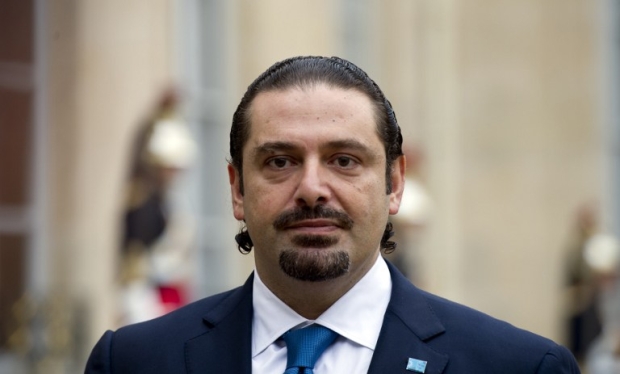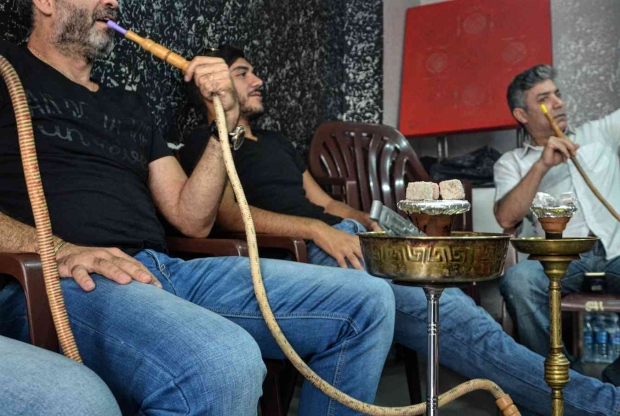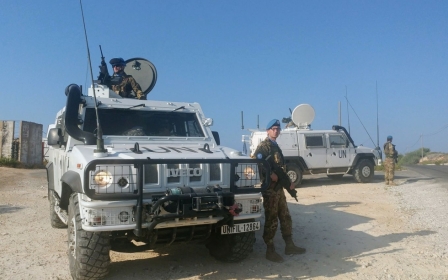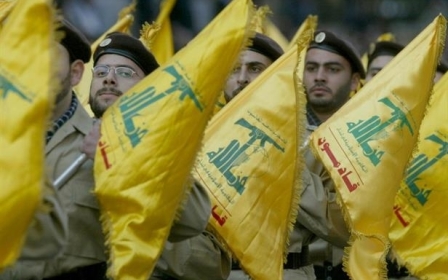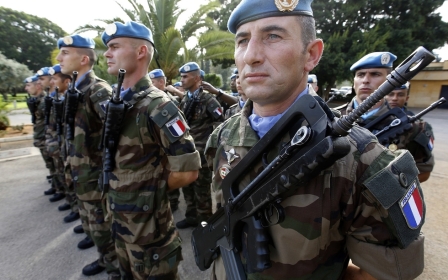'I feel ecstatic when I shoot': Lebanon's problem with gunfire celebrations
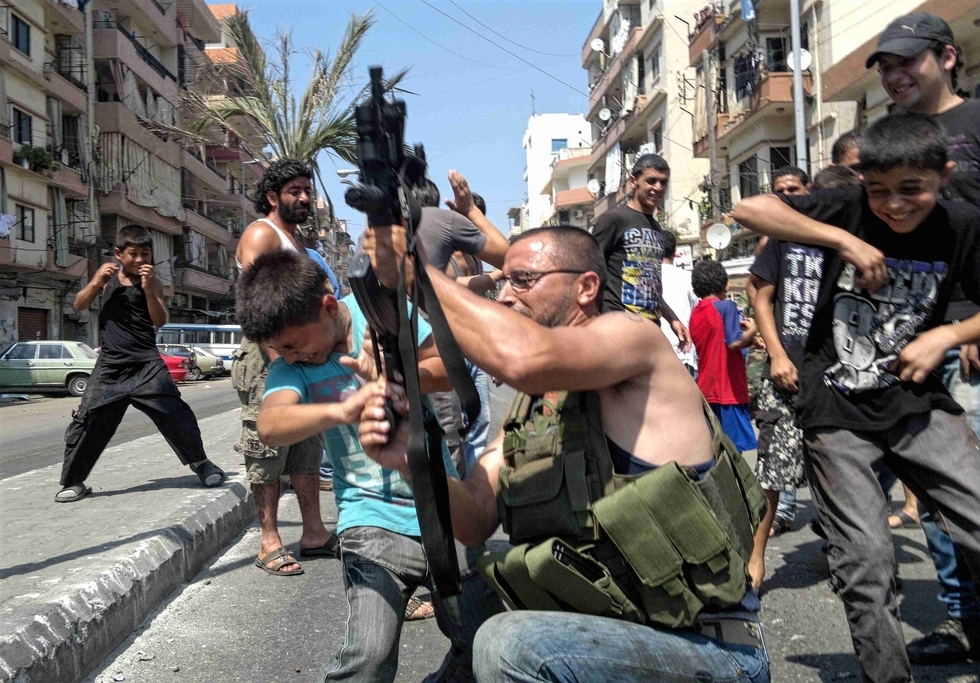
Sara Sleiman was felled by the bullet as she left the restaurant. Her killer didn’t intend to shoot her.
He was angry at a traffic jam in Zahlé, central Lebanon - and started firing into the air. One bullet ricocheted off the pavement and hit the 24-year-old school teacher in the head.
Ghida Sleiman, Sara’s mother, recalls the horror of her daughter’s death in May.
I never thought this could happen
- Ghida Sleiman
“I never thought this could happen,” she says through tears. We heard stories about gun shooting and accidents, but I never really felt concerned. I never thought it would happen to us. “
The police issued an arrest warrant against the killer but never caught him. Sleiman was another victim of the culture among some Lebanese of firing a gun in public.
New MEE newsletter: Jerusalem Dispatch
Sign up to get the latest insights and analysis on Israel-Palestine, alongside Turkey Unpacked and other MEE newsletters
A deadly tradition
It is not uncommon in Lebanon to see someone shoot their firearms into the air to express emotion, be they AK47s, hunting rifles or Magnums. Sometimes it’s at a wedding, political event or the announcement of school exam results. Or people do it to express emotions, such as anger, as in the case of Sleiman's killer.
Often the shooters use weapons left over from conflicts: Lebanon has been beset by conflict, including a civil war from 1975 to 1990 which left at least 150,000 dead and a further 17,000 missing.
According to Permanent Peace Movement, a Lebanese NGO focused on conflict resolution, Sleiman is one of 90 people to die from stray bullets so far in 2017.
On Monday, Prime Minister Saad Hariri and civil groups launched a campaign against what has become a deadly tradition.
Zeina Chamoun is a journalist and founder of the Don’t Forget Us (Ma Tensouna) movement, through which bereaved families campaign for action against celebratory gunfire. He tells Middle East Eye: “It is a cultural habit. For Lebanese men, firing a gun is a demonstration of power.”
Hariri said on Monday: “The real man is the one who respects the law and the lives of people. Men are the soldiers who know when to use their guns and when to shoot. Those who shoot randomly are not men.
“They think they are asserting their manhood by shooting indiscriminately, but in fact this indicates that they have a lack of manhood."
The practice is not limited to one group in Lebanon’s fractured society. Nor is Lebanon unique - firing guns into the air also happens in Yemen, Jordan, Palestine, Iraq and Syria, among other countries in the region.
But the shooters rarely consider what happens to their gunfire. This summer, a father accidentally killed his own son while shooting to celebrate Baccalaureate results. An 88-year-old man also died from a stray bullet during the same celebrations.
Arrests do happen but prosecutions are rare. In July, interior Nouhad Machnouk alleged that several shooters who had been arrested were then set free due to political protection.
Men are the soldiers who know when to use their guns and when to shoot
This week’s initiative is not the first time the Lebanese authorities have tried to crack down on celebratory gunfire but so far, public calls have had little effect.
Lebanon’s law has failed to advance on the issue and dates back to 1959. It prohibits “shooting in residential areas or within a crowd” and punishes shooters with a maximum of three years in prison and a 500 Lebanese Lira fine – or 30 cents by today’s exchange rates.
In 2016, a group of deputies led by Change and Reform bloc MP Ghassan Moukhaiber suggested changing the law but the plan has yet to bear any fruit.
Fadi Abou Allam, president of the Permanent Peace Movement, says that law cannot be the only recourse. “In Lebanon, the act of firing a weapon is rooted in tradition,” he says.
“People express feelings with guns so the matter cannot only be addressed from a legal perspective; we need to target cultural habits. This is why we want the local leaders to commit to a new code of conduct.”
The new code tells local leaders to avoid ceremonies where shootings take place and encourages them to arrest the perpetrators.
But the code may face a tough challenge. Permanent Peace Movement estimates that there are four million guns in Lebanese homes in a country with a population of about six million. Legal documents are required to keep a weapon – but only about 30,000 have been issued.
No deterrent
Just a few steps away from the Council of Ministers, in Beirut’s central district of Zoqaq el Blat, a group of six friends gather around for coffee and chicha. They admit to firing their own guns in celebration – but will only speak on condition of anonymity.
“I shoot in the air every time Hassan Nasrallah gives a speech,” one says in reference to the secretary general of Hezbollah, “because I love him.”
Nasrallah has previously condemned celebratory gunfire and threatened to kick shooters out of his party, calling on supporters “to refrain categorically from shooting and for everyone to cooperate to keep that from happening, and for officials to exert double efforts to keep this from happening.”
But that didn’t scare this supporter.
“I know he said that but I love him too much. And yes, it is dangerous and there are accidents but personally, I know how to shoot. I don’t aim at people, I just fire bullets in the air and it gives me a feeling of joy.”
Another gestures towards the ceiling, his hands clasped as if firing a rifle, and smiles. “I feel ecstatic when I shoot, I’m thrilled.”
An older man, a former fighter with the Christian militia, tries to explain how it got to this point. “During the civil war, everyone bought a gun to protect his home and his family. Afterwards, we kept them and now we pass them on to our sons.”
“Of course no one has a permit but who is going to check?” says the former fighter. “And even if they do, when you have tens of men shooting in the street, what can the authorities do about it?”
But mothers like Grace Safatli do not want other families to suffer the same heartache as she has.
My daughter was 20 years old. She took a bullet in her mouth
- Grace Safatli, mother
She lost her daughter Eliane to an angry shooter back in 2015 in the town of Kaslik, in the northern suburbs of Beirut.
“I was always scared when my daughter used to go out at night and I was right,” she says.
“That time, she was coming out of a nightclub when a man started firing his gun. My daughter was 20 years old. She took a bullet in her mouth.
“Those people are criminals and should be punished. ”
This article is available in French on Middle East Eye French edition.
Middle East Eye delivers independent and unrivalled coverage and analysis of the Middle East, North Africa and beyond. To learn more about republishing this content and the associated fees, please fill out this form. More about MEE can be found here.



